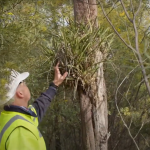
Native Seed Collection in Mine Site Rehabilitation
August 3, 2023
A Guide About Biodiversity Offsets in Mining
October 18, 2023Project studies are needed throughout the lifecycle of a mining project – from first exploration to mid-life strategic reviews and portfolio optimisation.
As Atlantech Principal Mining Engineer Dean Sorley explains, an effective project study process allows companies to allocate suitable resources to the project pipeline. This develops suitable projects into high quality mines, while rejecting unsuitable projects as early as possible.
Sound Project Development Practice
Good project development practice relies on three stages of project studies:
- Scoping
- Prefeasibility, and
- Feasibility.
Projects must pass through stage gates to justify progressing to more detailed and expensive study phases. The stage gate consists of a risk assessment covering significant project aspects, with controls developed if an option is to remain in the project development pipeline.
Projects which emerge through the three stages should deliver high value to their owners.
The three stages are described below.
Scoping Studies
Also known as concept studies or preliminary economic assessment, scoping studies occur early in the project life, or when significant strategic changes impact an existing project. They are relatively low cost and fast.
Scoping studies answer the question, “What could this project be?”. They assist companies to set strategic goals for company development.
Scoping studies develop a high level economic and technical analysis of a project for a wide range of operational methods and production rates.
Scoping studies allow an understanding, for the range of operational methods and production rates, of:
- Project position on supply cost curves
- Capital costs
- Operational methods and costs
- Volumes and types of products
- Revenue profiles and environmental issues impacting the project
- Risks or opportunities which must be addressed in future more detailed studies
- Fatal flaws in the project.
Experienced people are critical to conducting scoping studies. The high-level nature of these studies requires judgement in applying suitable mining and cost parameters and understanding.
At the end of the scoping study process the owner must be able to:
- select suitable options for further development.
- understand the exploration and supporting studies required to support subsequent project studies, or
- cease work on the project.
For certain projects, concept studies will be used to justify acquiring properties which become available on the open market and are impacted by the project.
Pre-feasibility Studies
Pre-feasibility studies (PFSs) answer the question, “What should the project be?”.
PFSs develop one or several options identified in the scoping study phase.
A PFS will be based on relatively detailed:
- exploration and geological models
- geotechnical studies and assessments
- mine planning
- process studies
- market analysis
- budget level capital costs, and
- unit operating costs.
A PFS is used to start environmental studies needed to support external approval processes. For projects in environmentally sensitive areas, the PFS will be utilised to establish an “approvable” plan which sets boundaries for the feasibility study.
Open market land acquisitions and water allocations should be made if possible.
A PFS supports discussions with third party suppliers regarding likely supply arrangements and preparation of detailed capital estimates for the preferred option of fixed and mobile equipment. Detailed marketing arrangements can also be developed to identify specific markets.
Community consultation can begin based on impacts identified in the PFS.
A PFS is the minimum level of study upon which a JORC Reserve Estimate can be developed.
At the end of the PFS the owner must be able to:
- select the most suitable option to take to feasibility study,
- understand the exploration and supporting studies required to control risks in the feasibility study, or
- cease work on the project.
Feasibility Studies
Feasibility studies (FSs) answer the question, “What will the project be?”.
Due to the large commitment of resources to conduct a FS, the project will have been shown to have sound financial fundamentals in the previous studies. Following good practise in the previous stages of project studies will dramatically reduce the risk of conducting a FS on a project unlikely to be approved both internally and externally.
The FS must address any risks identified in the PFS, and may be required for external approval in limited cases.
The FS is based on:
- geological and geotechnical models developed to address any issues identified in the PFS risk assessment
- detailed mine planning addressing specific environmental issues and anticipated approval conditions
- detailed process studies
- capital quotes based on equipment specified for the mine
- operating costs developed from first principles, and
- detailed marketing studies.
A reserves estimate will be prepared based on the FS, which together form foundation documents for final internal approval and external capital raising.
How we can help
There is no international agreement on feasibility study terminology or a quality standard to adhere too, which is why it is important to seek the expertise of experienced engineers and mine planners.
At Atlantech, we provide technical excellence and innovative mining and environmental consulting services. Our team of experienced mining engineers are experienced at conducting project studies, assisting our clients in assessing the viability of projects.
Please reach out to Atlantech for a confidential discussion about how we can help you understand the potential of your mining project.
Sources:


